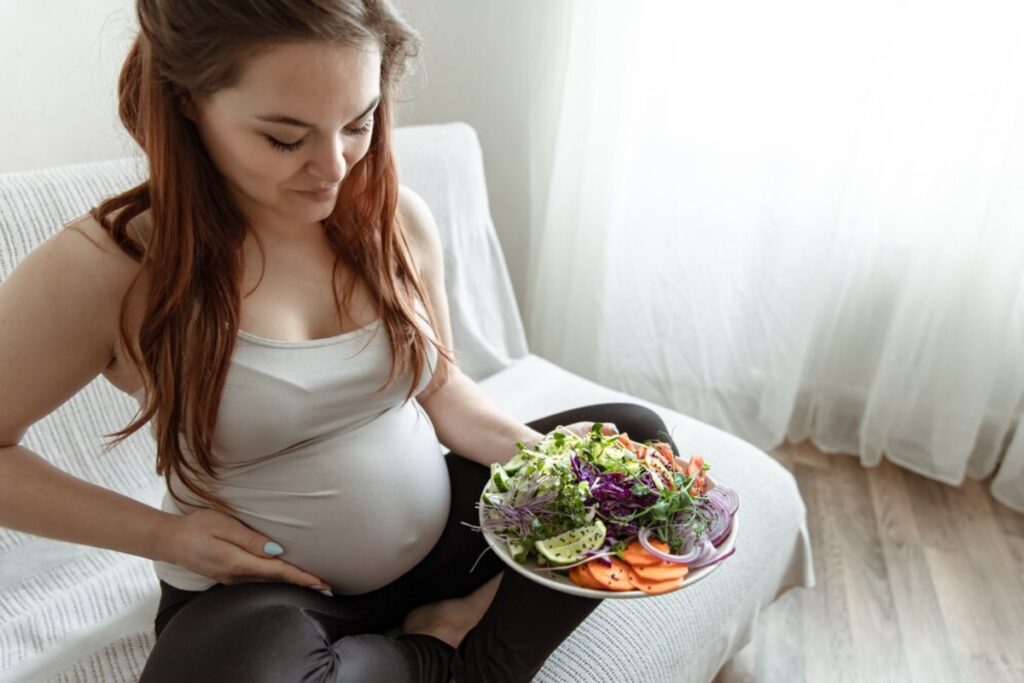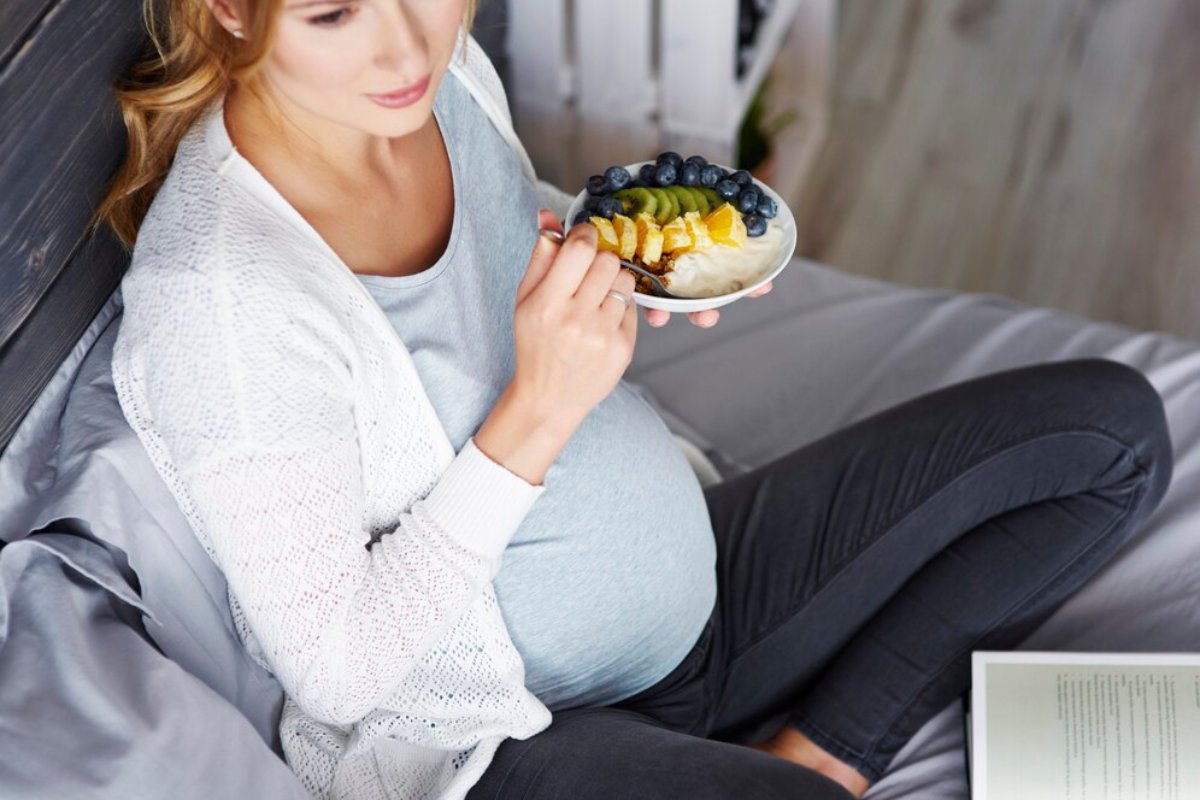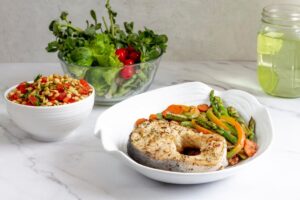The Health & Wellness Blog

Anti-Inflammatory Eating During Pregnancy
Pregnancy is a period of deep physical transformation, emotional preparation, and dietary importance. Every bite you eat affects your health — and your baby’s. There are lots of tips about diet during pregnancy, but very few which speak to the need for controlling inflammation during this critical time.
Pregnancy is a double-edged sword when it comes to inflammation. It’s a physiological process critical for immune development, thus expected to occur during the early and late stages of gestation. Stress, environment, or a poor diet can lead to long-term issues. Such issues can increase the likelihood of gestational diabetes, preeclampsia and preterm labour.
And that’s where anti-inflammatory eating comes into play. Eating whole foods, rich in nutrients, helps eliminate inflammation. This helps your baby grow and simplifies your pregnancy too.
Why It Matters: Inflammation and Pregnancy Complications
We now know that chronic inflammation is, in many ways, a root cause of many health issues, even during pregnancy. Too much inflammation sends things like hormone balance, nutrient absorption and immune tolerance haywire in pregnant women. These factors are crucial for a healthy pregnancy.
Conditions Linked to Inflammation During Pregnancy
- Gestational diabetes: Chronic inflammation can lead to insulin resistance.
- Preeclampsia: Inflammation plays a role in blood vessel dysfunction and high blood pressure.
- Preterm birth: High inflammatory markers have been associated with early labour.
- Low birth weight: Persistent inflammation can impact nutrient transfer to the baby.
Moms can lower inflammation by eating well. This helps reduce risks and ensures their body and baby get what they need to thrive.
Key Benefits of Anti-Inflammatory Nutrition for Expectant Mothers
1. Supports Baby’s Brain and Immune Development
Nutrients such as omega-3 fatty acids, zinc, and antioxidants are important for a baby’s nervous system and immune health. They are found in anti-inflammatory foods. These nutrients help reduce oxidative stress, which can interfere with fetal development.
Top foods: Wild salmon, walnuts, eggs (with yolk), pumpkin seeds, and spinach.

2. Reduces Pregnancy Discomforts
Inflammation often amplifies common pregnancy discomforts like joint pain, bloating, and fatigue. Anti-inflammatory foods can help soothe the digestive system and support hormonal balance.
Helpful additions:
- Ginger
- Turmeric
- Ripe papaya
- Probiotic-rich foods like kefir and sauerkraut.
3. Balances Blood Sugar and Prevents Crashes
Stable blood sugar is essential during pregnancy. Anti-inflammatory meals with fibre, healthy fats, and protein help keep your mood steady. They prevent spikes and dips that lead to fatigue and sugar cravings.
Try this combo: Brown rice with lentils, steamed greens, and avocado.
4. Promotes Healthy Weight Gain
Anti-inflammatory diets keep you away from processed and sugary foods. This helps you maintain a healthy pregnancy weight without strict limits.
Building a Pregnancy-Safe Anti-Inflammatory Plate
A successful anti-inflammatory approach isn’t just about eliminating foods. It’s about selecting nourishing options that suit your body.
What to Include Daily
- Colourful vegetables and fruits: Berries, leafy greens, beets, carrots, and citrus fruits.
- Whole grains: Brown rice, oats, barley, and quinoa.
- Healthy fats: Avocados, chia seeds, flaxseeds, olive oil.
- High-quality protein: Lentils, tofu, organic chicken, eggs, and fatty fish.
- Hydration: Plenty of filtered water and herbal teas like rooibos or chamomile.
What to Reduce or Avoid
- Processed meats
- Refined sugars and white flour
- Hydrogenated oils (trans fats)
- Artificial sweeteners and additives
- Excess sodium (read food labels)

Sample Daily Meal Plan for Anti-Inflammatory Pregnancy Nutrition
Breakfast
- Oatmeal topped with blueberries, ground flaxseed, and a spoonful of almond butter
- Herbal tea or a glass of water with lemon
Snack
- Sliced cucumber and carrots with hummus
- A handful of pumpkin seeds
Lunch
- Quinoa bowl with grilled chicken, steamed broccoli, sweet potato, and tahini dressing
Snack
- Greek yoghurt with cinnamon and chopped walnuts (choose pasteurised, plain options)
- Pear or apple
Dinner
- Baked salmon with turmeric-roasted cauliflower and brown rice
- A small leafy green salad with olive oil and lemon
Evening wind-down
- Warm chamomile tea and a few dates or a square of dark chocolate (70%+ cocoa)
Additional Expert Tips & Common Mistakes to Avoid
Tips from Nutritionists and Obstetricians
- Rotate your foods: Variety prevents nutrient gaps and supports a diverse gut microbiome.
- Choose organic when you can. This helps reduce pesticide exposure, especially in fruits and vegetables like strawberries, spinach, and apples.
- Track how you feel: Food diaries can help identify which foods reduce or trigger bloating or fatigue.
- Cook with anti-inflammatory herbs: Add fresh basil, turmeric, garlic, ginger, and rosemary to meals.
Common Pitfalls to Watch Out For
- Too many “healthy” snacks: Granola bars and “natural” treats can be loaded with sugars and additives.
- Forgetting about hydration: Water is essential to flushing toxins and supporting digestion. Aim for at least 8–10 glasses daily.
- Avoiding all fats: Fat is essential for a baby’s brain development. Prioritise good fats over cutting back entirely.
- Overdoing supplements: More isn’t always better. Get nutrients through food first and use supplements only when needed and prescribed.
Advanced Insights: Functional Nutrition in Pregnancy
Understanding the Role of Gut Health
Pregnancy can change the microbiome, affecting inflammation levels. Incorporating prebiotic and probiotic foods can support both digestion and immune health.
- Prebiotics: Asparagus, garlic, onions, oats
- Probiotics: Yogurt, kefir, sauerkraut (pasteurized), miso
A healthy gut may reduce the risk of prenatal mood disorders and enhance nutrient absorption.
Timing and Meal Spacing
Eating small, balanced meals every 3–4 hours can help regulate blood sugar and prevent acid reflux or nausea. Don’t wait until you’re starving—this can spike cortisol and cause overeating.
When to Consult a Specialist
If you have inflammation issues, like autoimmune disorders or pregnancy problems, talk to a registered dietitian or functional medicine practitioner. They can help you create a tailored anti-inflammatory plan.
A Nourishing Path for Mother and Baby
Anti-inflammatory eating in pregnancy isn’t a trend, it’s a tool. It empowers women to take control of their health. Super simple, whole foods can minimise risk, quell discomfort and nourish the life they’re carrying.
By eating balanced meals and being mindful of your body, you create a strong foundation for your health and the health of your baby. Whether you’re currently pregnant or prepping for it, there’s no time like the present to get going.









